Phoenix House looks to take next step in rehabilitation
Few people in Alabama have ever heard of Dave Durocher, but he may soon have a dramatic impact on Tuscaloosa.
Durocher describes himself as a drug addict, a liar, a thief, a manipulator, a cheater and a violent man. He had done four terms in prison and was looking at what amounted to a jail sentence for the rest of his life when he persuaded a California judge to give him a chance and enter a therapeutic community program known as Delancey Street.
It changed his life.
Durocher is now the director of The Other Side Academy, a therapeutic community in Salt Lake City, Utah, where he is helping others turn their lives around and he's the inspiration behind what Ted Sexton, director of Phoenix House in Tuscaloosa, hopes to do here for people recovering from drug and alcohol addiction.
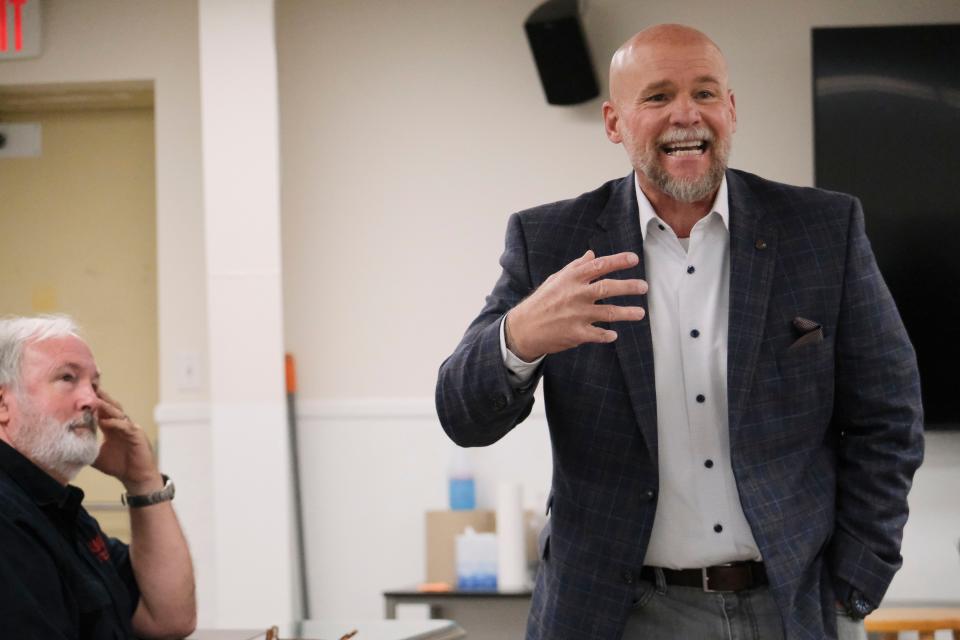
“What can we do to actually help people recover long-term? Anyone can get someone clean and sober. You throw their butts in jail and get them clean and sober. The question is, when they come back out, what are we doing to keep them from going back?” Sexton said.
The problem that rehabilitation programs like Phoenix House have is that the time is too short to effect lifelong change for many who come through the program. Sexton, a former Tuscaloosa County sheriff who came on board as director three years ago, said they have made great strides in getting Phoenix House back on track. A previous director had embezzled money and ruined many relationships in the community.
Sexton said they have made major improvements to the Phoenix House's physical building and gotten the programs back on track. The problem they face, a problem that many rehabilitation programs face all across the country is that insurance and government regulations dictate the length of time a person can be in the program.
Building a long-term therapeutic community through Phoenix House could be the solution, Sexton says.
'Like high school with knives'
Durocher, who compared the jails in California to high school with knives, said that every trip to jail just made him a better criminal and rehab programs with brief visits with counselors did him no good.
“We are indoctrinated in this country now to think that one-on-one therapy is the answer. Well, I’ve got news for you, if you think some geek who went to college is going to help Dave after 27 years of drug addiction and four prison terms, anybody who believes that probably needs more help than I did,” Durocher said during a visit to Tuscaloosa in October.
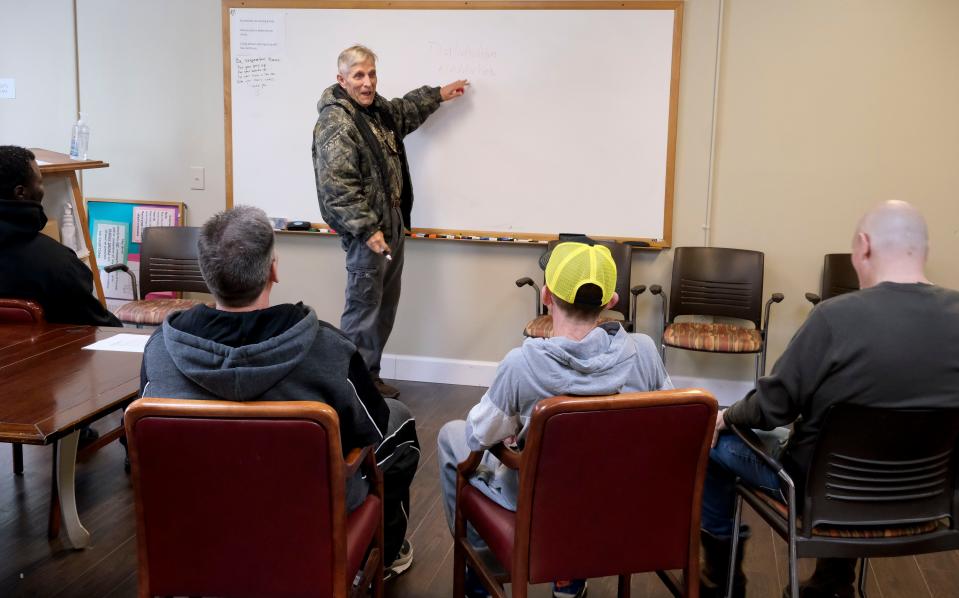
Durocher advocates a completely different way to address the problem and it is a solution he found in the Delancey Street program. Durocher had been in and out of rehab programs, he had said and done all the right things to get out the program, but immediately returned to his old way of life as soon as the counselors released him. It took the long-term approach at Delancey Street to get him free from his ingrained way of life.
Delancey Street requires a minimum of two years in the program. Durocher ended up staying for eight years, the last five as director of the Los Angeles location. He was recruited to begin a similar program in Salt Lake City that is named The Other Side Academy (TOSA). It is one of several different therapeutic communities in the nation and all of them are highly effective. The problem is that insurance companies and governments will not pay for such long-term and highly intensive care. Successful long-term communities such as TOSA have found the solution.
They take no government money and no money from insurance. They are entirely self-sufficient through their organization running businesses in the local communities, from thrift stores to a moving company, in the case of TOSA.
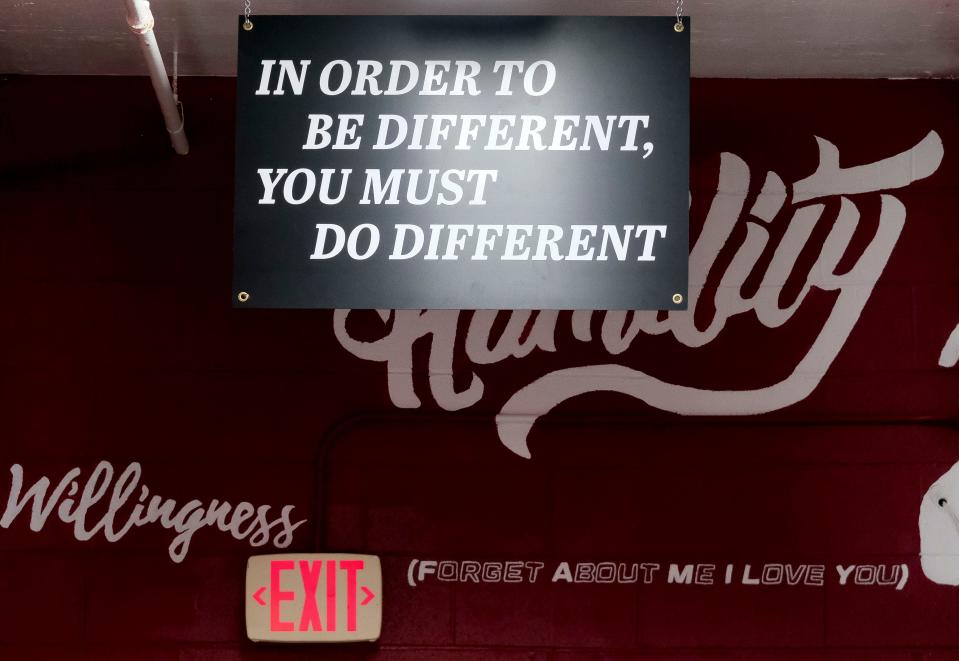
“When I am going to jail, who is paying for it? You are. I am exploiting you. When I went to jail, you paid my rent. I was a burden on you. Think about what I’m telling you. When I am an adult and doing something wrong and you have to pay for it, there’s something wrong with that,” Durocher said.
The benefit to long-term programs is that they not only get a person clean and sober, they also retrain them and teach them how to live life in a responsible manner. Part of the value of the program is that it gives a person who has been a drug addict and known little else the ability to step out of the lifestyle and begin living as a responsible member of the community.
Recidivism 'nearly zero'
Durocher quotes some impressive statistics.
“If you stay for the full two and a half years, there is a 76% rate of drug-free, crime-free and employed life thereafter. Recidivism goes from 100% to 12%. If you stay three years or longer, 85% don’t use again. If you stay four years or longer, its upwards of 95% and recidivism is nearly zero,” Durocher said.
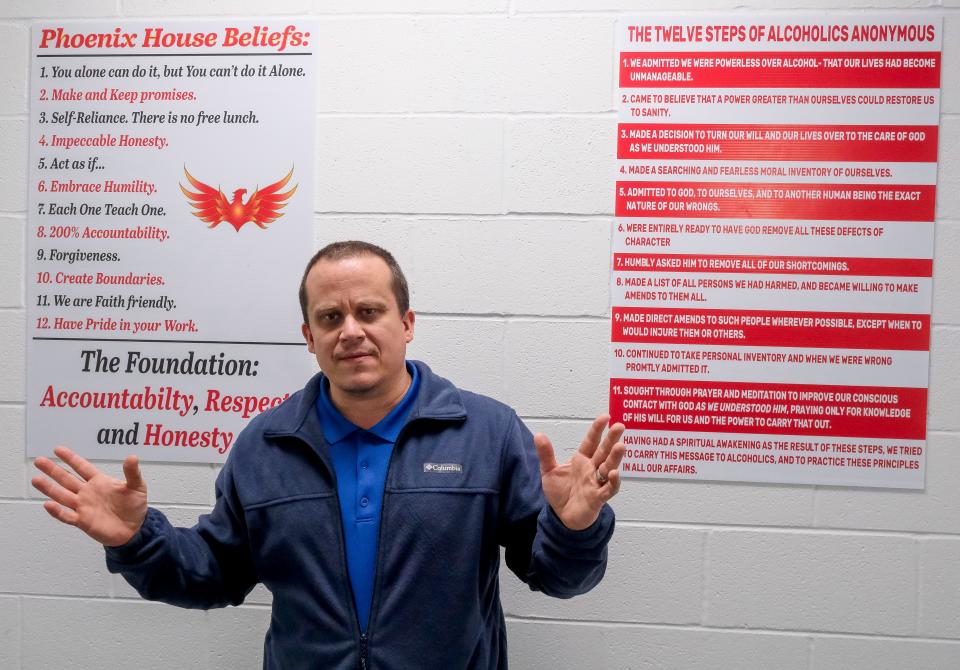
Sexton and Durocher quoted numbers of less than a 5% success rate in typical rehabilitation programs. At Phoenix House, with the improvements they have made, the numbers are better.
“We are trying to do this all in 12 weeks, but we are finding out that we have improved the graduation rate by 25%. It was less than 50% three years ago. We are up to about 70% now. Of that 70%, 90% are going out the door with full-time jobs with benefits. We can show evidence based data that you can be successful,” Sexton said.
The problem these programs face is recidivism. After the 12 weeks, they are releasing people back into the same environment that got them in trouble in the first place and many people fall back into the same cycle, which puts them back in jail or in prison for the same crimes.
Sexton and his associates at Phoenix House are working to change that. They face a daunting challenge with more than 80% of people coming to them with criminal records. Most have drug and alcohol problems, many more come with domestic violence issues, children who are left parentless while their parent is incarcerated, the inability to get and hold a job, most are unemployed and many are either homeless or have only temporary access to housing.
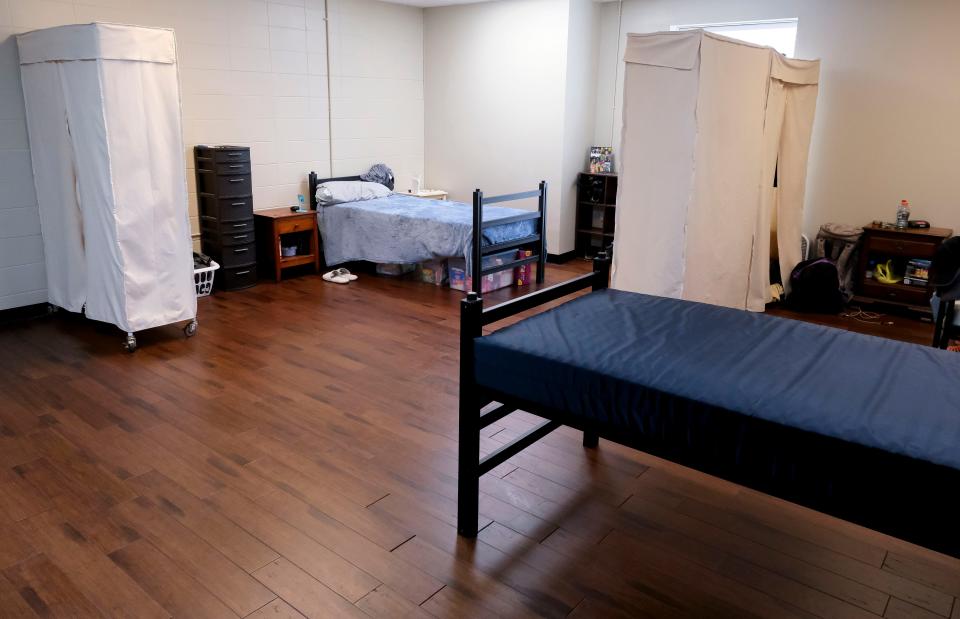
Sexton believes a long-term therapeutic community in Tuscaloosa is the answer. Like other long-term therapeutic communities in the country, it would be funded by the businesses established to support it. Phoenix House is to the point in development that they are looking for property to purchase.
'A Band-Aid on a bullet wound'
Phoenix House case management supervisor John Brinson said, “Short term is like trying to put a Band-Aid on a bullet wound.” Brinson is a graduate of Phoenix House. He spent 14 months in the program rather than the 90-day maximum that most are limited to.
In like manner, Jon Tyler, the clinical director, also spent 14 months in the Phoenix House. He shares the view that short-term care is largely ineffective for long-term change.
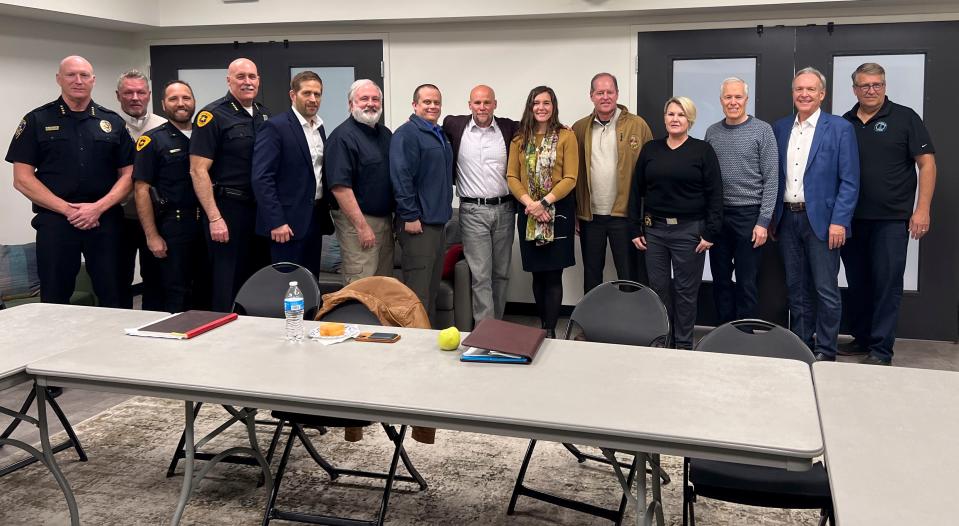
“Overall, we are trying to help a whole population of people, people who have drug and alcohol issues. We are trying to help them get a footprint in society. If you don’t do that, you are not going to be able to survive,” Tyler said.
That, in short, is the goal of a therapeutic community. The programs require a two-year commitment during which time clients live in housing provided by the community, are taught life skills, and helped to gain employment with benefits so that they can make a decent living and have a chance to change their life. The live-in counselors are there 24 hours a day and work not only to teach life skills, but they also help resolve old criminal issues that could drag them back into the criminal justice system.
When a person graduates, the goal is to have developed the life skills that break the back of the addiction and the hopelessness that kept the person in the criminal justice cycle of crime and punishment but without reformation.
Reach Gary Cosby Jr. at gary.cosby@tuscaloosanews.com.
This article originally appeared on The Tuscaloosa News: Ted Sexton and Phoenix House seek to build a therapeutic community

